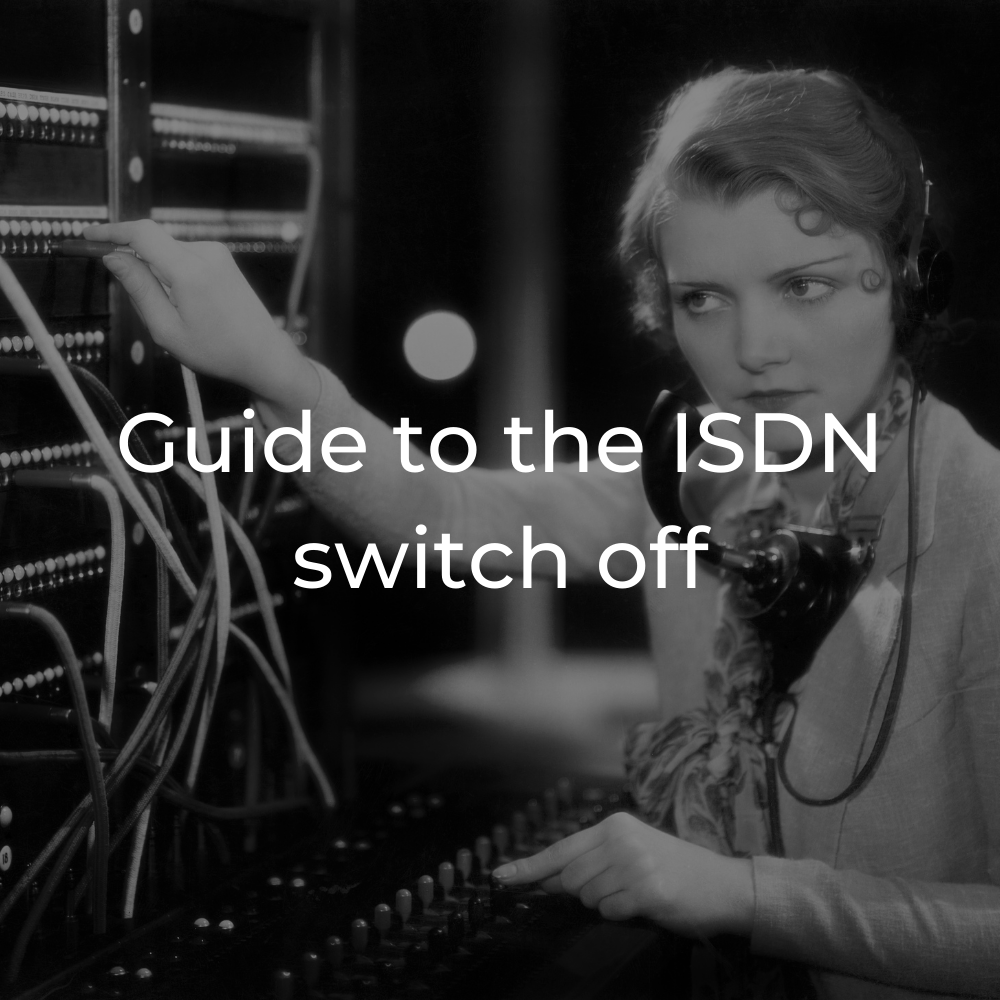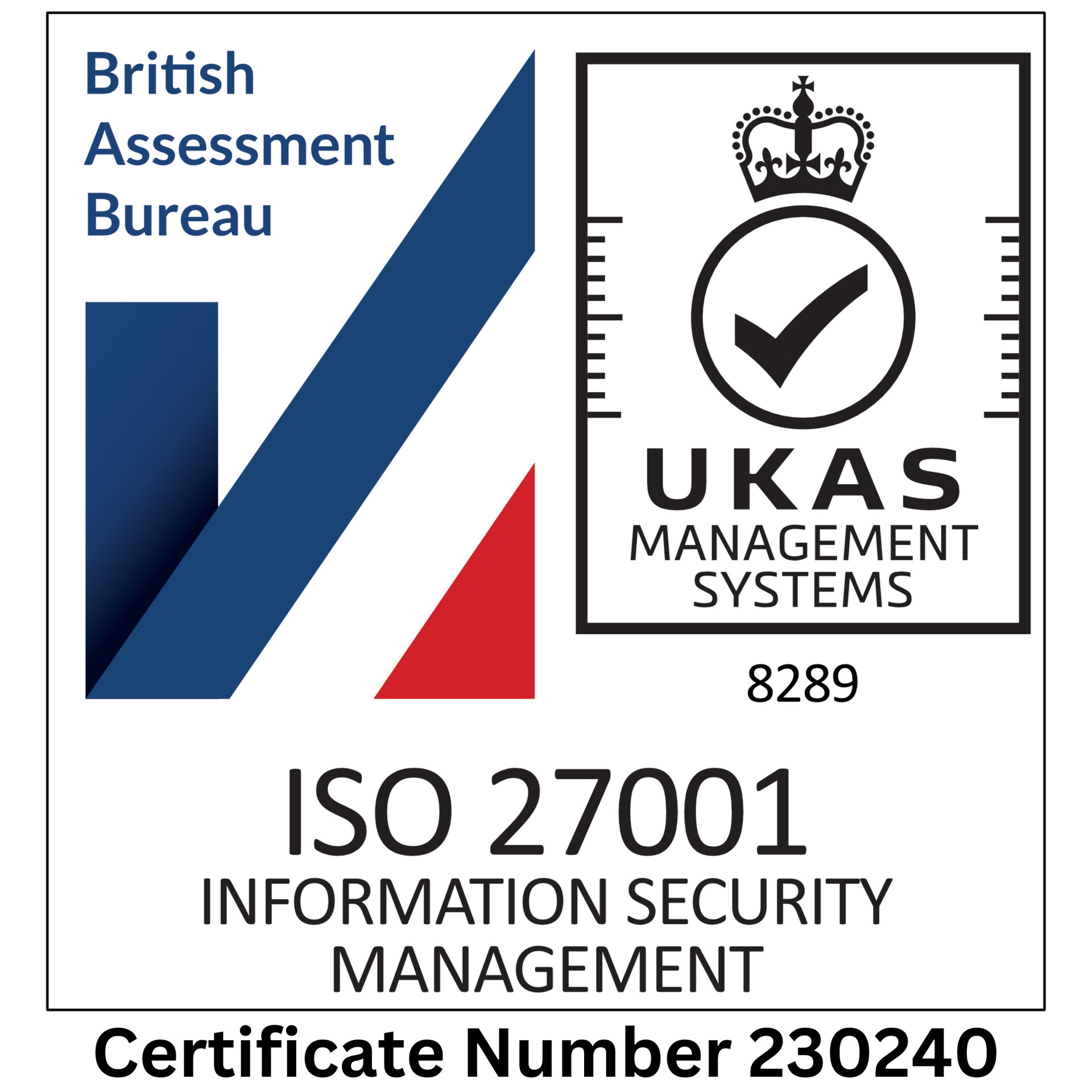Time's running out – are you ready for BT's "Big Switch Off"?
In 2025, BT will switch off its ISDN and PSTN phone lines for good. Is your business ready for the change? Learn what's happening and what to do.

Things change. It's an inevitable fact of life.
We're sure you wouldn't go out rocking the same hairstyle you had in 1993. And you wouldn't try to run your business using a Nokia 3210 and a Windows XP laptop.
(Don't even get us started on
the price of Cadbury's Freddos.)
Well, in case you haven't heard, the UK's phone systems are changing with the times too.
In 2025, BT will switch off its legacy ISDN and PSTN phone lines and certain pieces of hardware will stop working entirely.
This change is commonly known as the "Big Switch Off" or "the ISDN switch off".
If you're not prepared for the change? As Blondie once (sort of) said, your business could be left hanging without a telephone.
"But Yoozoom, 2025 is ages away"
Come on now. We've all experienced the "DIY phenomenon".
You tell yourself, in all sincerity, that you'll put that shelf up next week. Then before you know it, two years have passed and your books are still stashed haphazardly in a corner of the room.
So, yes. 2025 is closer than you think. And remember: your business phone system is more important than any shelf.
And did we mention that the process has already started? BT is busy upgrading local exchanges across the country, and by 2023 the old-fashioned PSTN and ISDN phone lines will be unavailable for purchase.
"What's wrong with the old technology? And what's replacing it?"
PSTN technology has been at the heart of the UK's telephone network for many years.
The problem is that it's old. Really old. Some of the copper telephone cables that run under UK streets have been there since the 19th century.
As you can imagine, this felt old-fashioned even in 1985. That's when BT introduced ISDN technology, which at the time was revolutionary. ISDN allowed for faster transfer of data, as well as new-fangled services like voice calling.
Fast-forward to nearly 40 years later, and ISDN is looking a little creaky too. While it was impressive for its time, it's been thoroughly overtaken by the new technology on the block: VoIP.
VoIP stands for "voice over internet protocol". In Plain English, this means a phone system that transmits voice (and other things) over the internet, rather than plain old telephone lines.
VoIP can do everything PSTN and ISDN can do – and more. But here's the clincher: it doesn't rely on the old systems to work.
This leaves PSTN and ISDN completely redundant. It's little wonder BT is planning to retire them.
"What do I need to do?"
Simple answer: you need to switch to a
VoIP phone system.
Many businesses already have. But if you haven't, the time for "umm-ing and ah-ing" is over. You must have a VoIP phone system in place before PSTN and ISDN are switched off in your area.
If you don't, any hardware that relies on the old telephone lines will no longer have a working connection. This includes telephone handsets, of course. But other hardware might also be affected, including:
Alarms- Door entry systems
- Cash machines
- Payment terminals
- Lift emergency lines
If these devices are relatively new, they might have an "IP mode". Switching to this mode allows them to operate using VoIP. If they don't have an IP mode, you'll have to upgrade to hardware that does.
"What's in it for me?"
Replacing your phone system and a whole bunch of hardware might feel like a hassle. But there are plenty of benefits to VoIP, beyond just making sure your phones still work in a few years.
Here are three of them.
1. More reliable calls (that sound better too)
Here's an old wives' tale that refuses to die: "VoIP phones are unreliable".
This is just plain wrong. After all, if VoIP was unreliable, would BT be putting all its eggs in a VoIP-shaped basket?
Sure, in the 1990s when we were all relying on slow dial-up internet connections, VoIP might have been a bit ropey. But the vast majority of businesses now have fast, reliable internet connections that are built to support VoIP and a whole lot more.
If your internet connection is reliable, your VoIP phones will be reliable. Simple as that.
Bonus: the calls will sound better too. In fact, lots of VoIP providers offer HD voice options, which are light years ahead of PSTN calls in terms of call quality.
2. Cheaper calls
VoIP is just plain cheaper than bog-standard landlines.
Sure, there'll be an initial outlay when you upgrade your phone system and handsets. But once that's out of the way, you can wave goodbye to that hefty phone bill for good.
3. An absolute megaton of features
Honestly, we could write a book about all the cool things VoIP can do.
A good VoIP system isn't just a phone line. It's also a complete communications suite that works on computers, smartphones and desk handsets. It allows for video, instant messaging and online webchat. And it lets you use the same number from any device, from anywhere in the world.
And what can PSTN and ISDN do? Oh yeah, transmit voice. Uh… very cool.
"How can I find a good VoIP system?"
You could start by
giving us a call.
Here at Yoozoom, we saw the writing on the wall for PSTN and ISDN more than 10 years ago. We knew that VoIP was the future, so we stopped providing old-fashioned systems altogether.
We're not just blowing our own trumpets, though. The fact is, many providers have jumped on the VoIP bandwagon since – but few have the experience and know-how that we do.
Sign up with us, and we'll help you through every step of the process. We'll learn what your business needs and recommend a VoIP system that ticks every box.
Want to know more? Discover what our
VoIP phone systems can do. Or
get in touch for a no-obligation chat – we're always happy to discuss our tech, even if we're just answering a few questions.
Thanks for reading! While you're here, why not sign up for our
Knowledge Hub newsletter? We'll send cool tech news and tips direct to your inbox. Spam free – guaranteed.




















